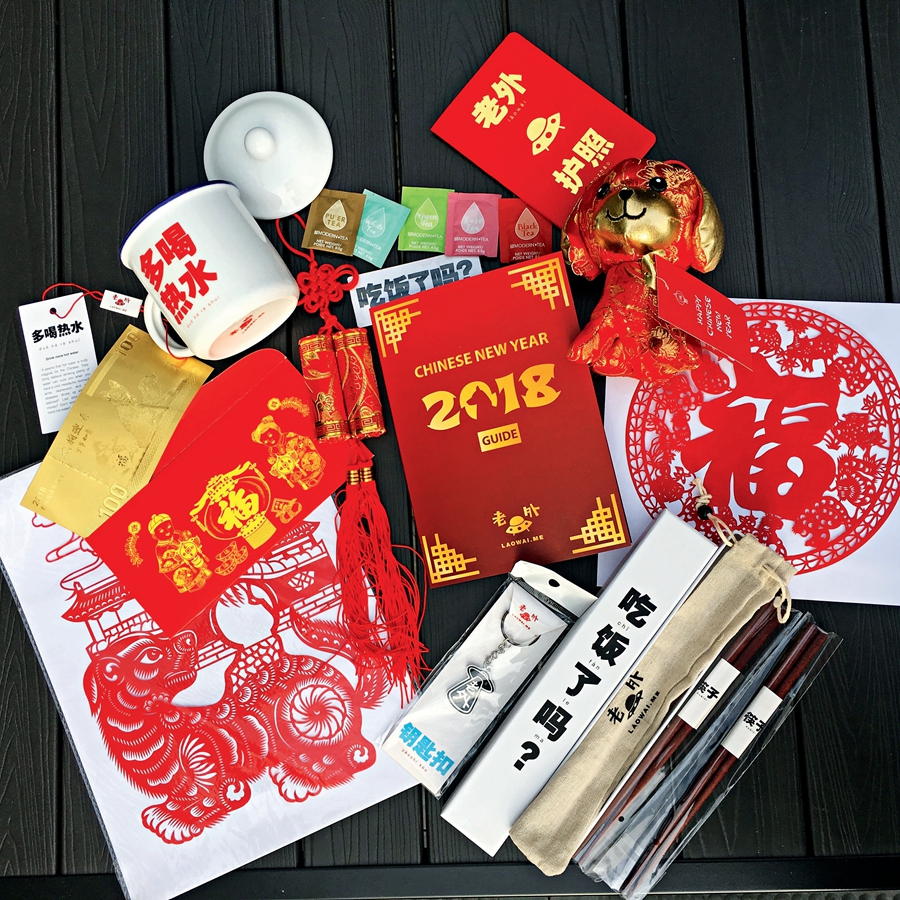Benefits of Learning Chinese
When Zhdanov turned 18, his parents felt relieved when he chose a promising major: Chinese studies. In the 1980s, there was a prevailing belief in China, “You will have no trouble throughout the world once you’ve learned mathematics, physics, and chemistry.” There is an equivalent belief in Russia today that a good command of the Chinese language will ensure a promising career.

Russian entrepreneur Artem Zhdanov.
Zhdanov’s hometown is in Siberia. “The flight time from my hometown to Urumqi is basically the same as that to Moscow,” he said. Before college, Jackie Chan and the Great Wall were the only things Zhdanov knew about China. He even had some prejudice against this neighboring country. “I thought all Chinese people eat dog meat,” he said. Only when he came to China, did he begin to realize the reports he used to read were mostly one-sided stories.
He never planned to study Chinese in college. “I thought about international relations. For language studies, most people chose English, French, or Spanish. I wanted something different, so I learned Chinese.” During the summer of his sophomore year, Zhdanov made his first visit to China and spent three months in Northeast China. One year later, he began his second adventure: setting out from the Altai Mountains, he first traveled to Kazakhstan, then to Urumqi where he was lucky enough to get a free ride and traveled all the way to Lanzhou, Xi’an, Zhengzhou, and finally Shanghai.
This experience changed Zhdanov’s life. He opened an account on VK, the largest social networking site in Russia, to introduce everything about China to young Russians. It didn’t take long before he attracted a large number of followers and fans. Today, the account has grown into Russia’s largest WeMedia account on China with nearly 100,000 followers.
After graduation, Zhdanov, fluent in Russian, Chinese, and English, first came to Dongguan in southeastern China, where he worked for two consultancy companies helping Russian small and medium-sized Russian businesses connect with Chinese factories. In his spare time, he continued to work on EKD.ME. As followers surged, more and more Russian businesses and vendors noticed Zhdanov. A raft of questions came to the young man: How to do business with the Chinese? What’s the best way to find a reliable factory in China?
“I never expected I could start a business from my hobby,” said Zhdanov. After quitting his job at the Russian consultancy firm, he established his own consultancy company UCHINA with two other partners.
At first, Zhdanov focused on the Russian market by serving as an intermediary between Russian businesses and factories in China. The former sent orders to the latter and sold the products back in Russia. Things changed in late 2014 when Russia suffered an economic crisis and a drastic depreciation of the ruble. During the most difficult period, the purchasing cost of Russian businesspeople in China doubled, forcing many to return to the domestic market.
Zhdanov had to adjust his development strategy. He set his eyes on the U.S. market. At present, more than 40 percent of his clients are from the U.S. On the other hand, Zhdanov attempted to explore new opportunities in Russia. “Russian clients used to buy goods from China, and now many are trying to sell products to China,” he said.
The Birth of LAOWAI ME
About four years ago, Zhdanov ran across a T-shirt heatedly sought after by foreigners or as they’re referred to in China, laowai. “The front says ‘laowai comes,’ and the back ‘laowai goes.’ It is funny,” Zhdanov said. He ordered two immediately. When he received his package, he was disappointed in the low quality of the shirts. After some investigation, Zhdanov found the quality of such culturally creative products targeted towards laowai is generally unsatisfactory. Determined to create something better, he made the decision to design his own unique T-shirts.
At that time, Zhdanov had over 40,000 followers on VK. He started with 200 T-shirts. “They sold out just in one month, and I made some cash,” Zhdanov recalled. This attempt inspired him to start up a second business – and such was the birth of LAOWAI ME.

Popular products on LAOWAI ME.
After registering a domain name, Zhdanov worked to open an online store on Taobao, which he had heard of when he was a college student in Russia. “There was no AliExpress [international version of Taobao], which is popular among Russian people, 10 years ago. Young Russians managed to shop on Taobao through transit companies,” he said.
Zhdanov learned more about Taobao after he came to China. “Consumers will not even notice a new brand like mine if you don’t showcase it on Taobao,” he said. He purchased an established online store from a friend and started to teach himself how to advertise the products, send delivery, and handle his customers.
One year ago, Zhdanov planned to register the trademark LAOWAI ME. He made a special visit to an expert on Chinese language to consult whether the word “laowai” is derogatory. The expert opened a thick dictionary and said about 100 years ago, it was indeed a word implying hostility. However, over the past 20 years, especially after the 2008 Beijing Olympic Games, laowai in Chinese people’s eyes has become a neutral appellation.
In fact, foreigners are ready to pay for products containing the word laowai. A U.S. customer who bought a passport case from LAOWAI ME reviewed that she liked the four Chinese characters of “laowai’s passport” printed on the case. “I’m going to visit China, so I think it’s pretty cool to have a passport case with Chinese characters,” she said.
The most popular product on LAOWAI ME is a T-shirt printed with three Chinese phrases, which are nihao, xiexie, tingbudong, meaning hello, thank you, and I don’t understand, respectively. “I’d certainly draw a lot of attention if I wandered around Chinatown in such a T-shirt,” said a U.S. buyer. Another buyer showed a picture on Instagram and wrote, “I will send my little girl to learn Chinese when she turns four.”
Zhdanov said that the customers who shop in his online store are about half Chinese and half foreigners. From T-shirt to mugs, passport cases, and refrigerator magnets, ordinary daily items become adorable and hilarious when they are blended with traditional Chinese cultural elements. Those who are paying for them share one character in common: love for Chinese culture.
A Land of Opportunities
Zhdanov would have followed his father’s plans and taken a stable job as a civil servant in his hometown if he didn’t come to China. Now, the successful young businessman has decided to settle in China.
“Russians included in the Forbes rich list are either oil tycoons or natural gas giants. China is different. Its channels of social mobility are open to ordinary people,” said Zhdanov. However, many Russians still hold the stereotype that China is at a stage where people still lack sufficient food and decent shelter.
When Zhdanov talked about his experience in China with friends in his hometown during a visit, people found it unbelievable. “I told them the minimum monthly salary for factory workers in Shenzhen is RMB 3,000 at least. They couldn’t believe it because for teachers in smaller Russian cities, which is a decent job in Russia, the salary is about the same,” he recalled.
After arousing friends’ curiosity about China, Zhdanov continued his narration of his adventure. “Besides international Internet giants like Alibaba and Tencent, China has reputable consumer electronics makers, such as Xiaomi, which produces smart phones and DJI, which makes unmanned aerial vehicles,” he said, adding that Russian tech companies all look up to Silicon Valley in the U.S. “China has a favorable business climate and a huge market,” he said, noting China is a better option for businesses.
To friends in the hometown, nothing is more tempting than Zhdanov’s own success in China. They never expected the young boy, who waywardly chose to study Chinese, could grow to a successful businessman in just 10 years. From running a WeMedia account to a consultancy company and a highly sought-after online store, Zhdanov is successful in the eyes of his friends.
However, nothing is gained easily. The enterprising young man has experienced numerous setbacks during his adventure. The economic crisis hitting Russia in late 2014 nearly devastated his newly established consultancy company. Running an online store is also no easy task. “The first thing I do when I wake up every day is to check how many T-shirts LAOWAIME has sold,” he said.
Instead of hardships, Zhdanov talked more about the opportunities China gave to him. “China is an ideal place for entrepreneurs who have faith and are determined to start from scratch. As long as you have a good idea and put it into action, you can make your dreams come true.”
LIU ZHUORAN is a reporter with Global E-businessmen.